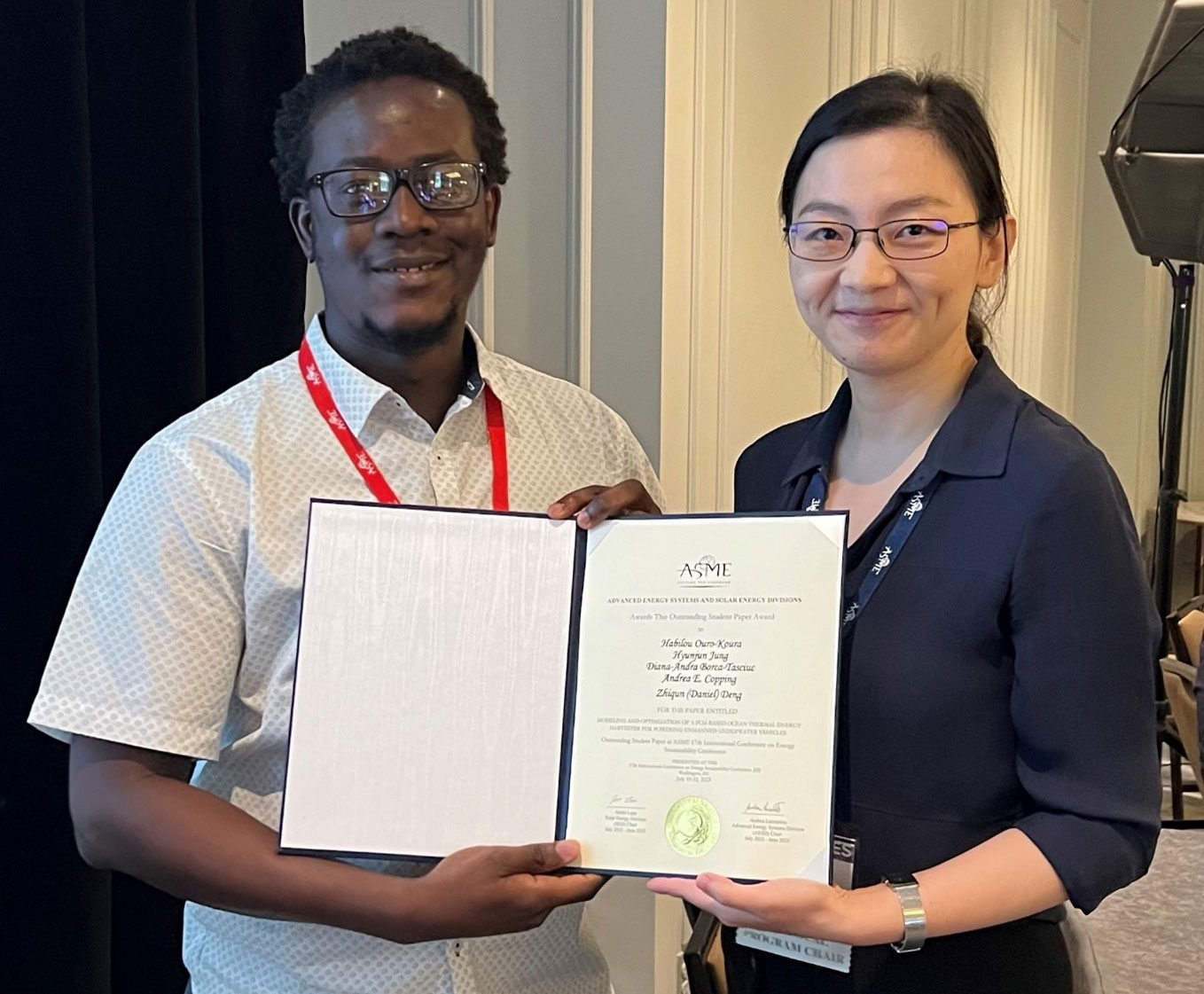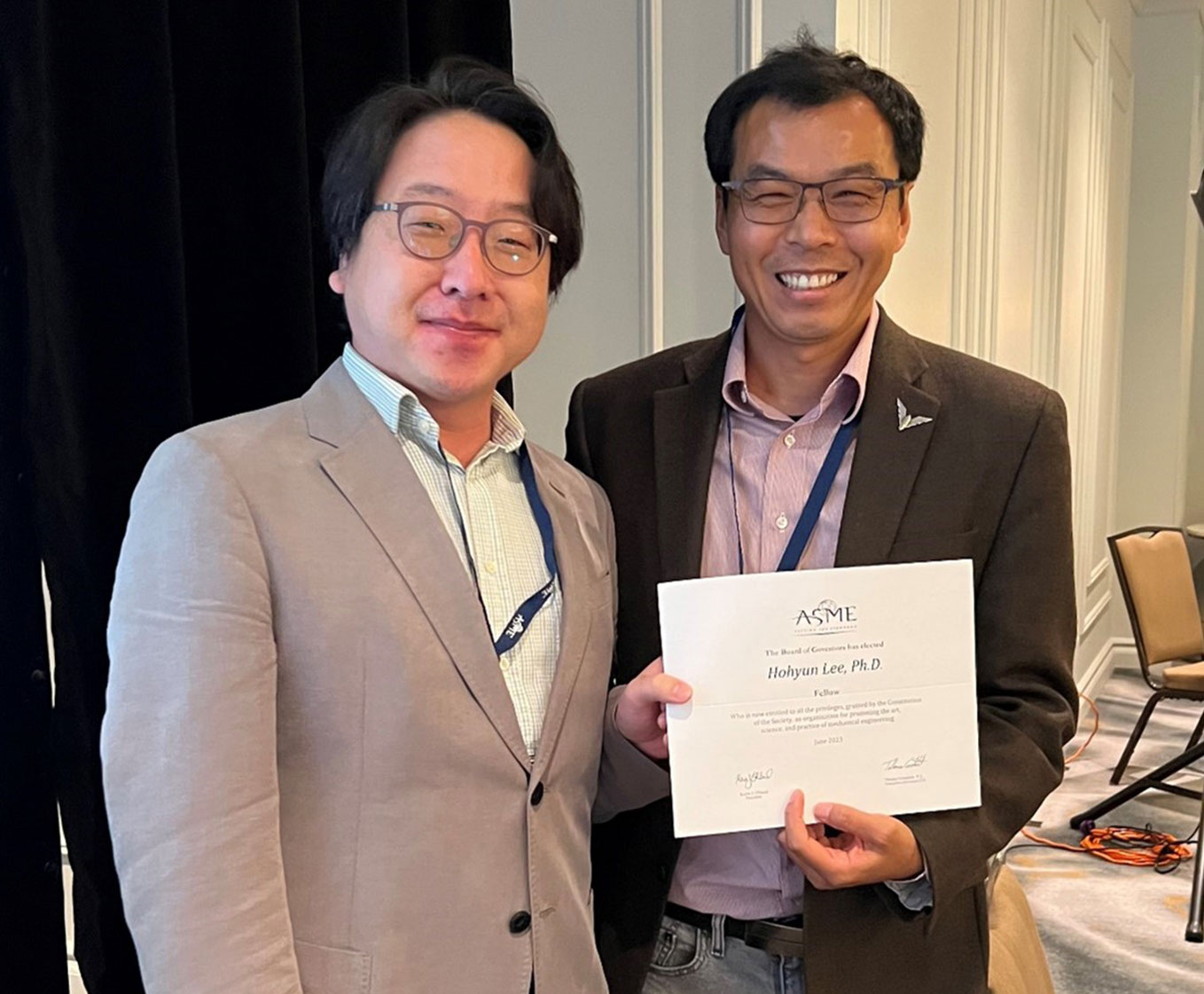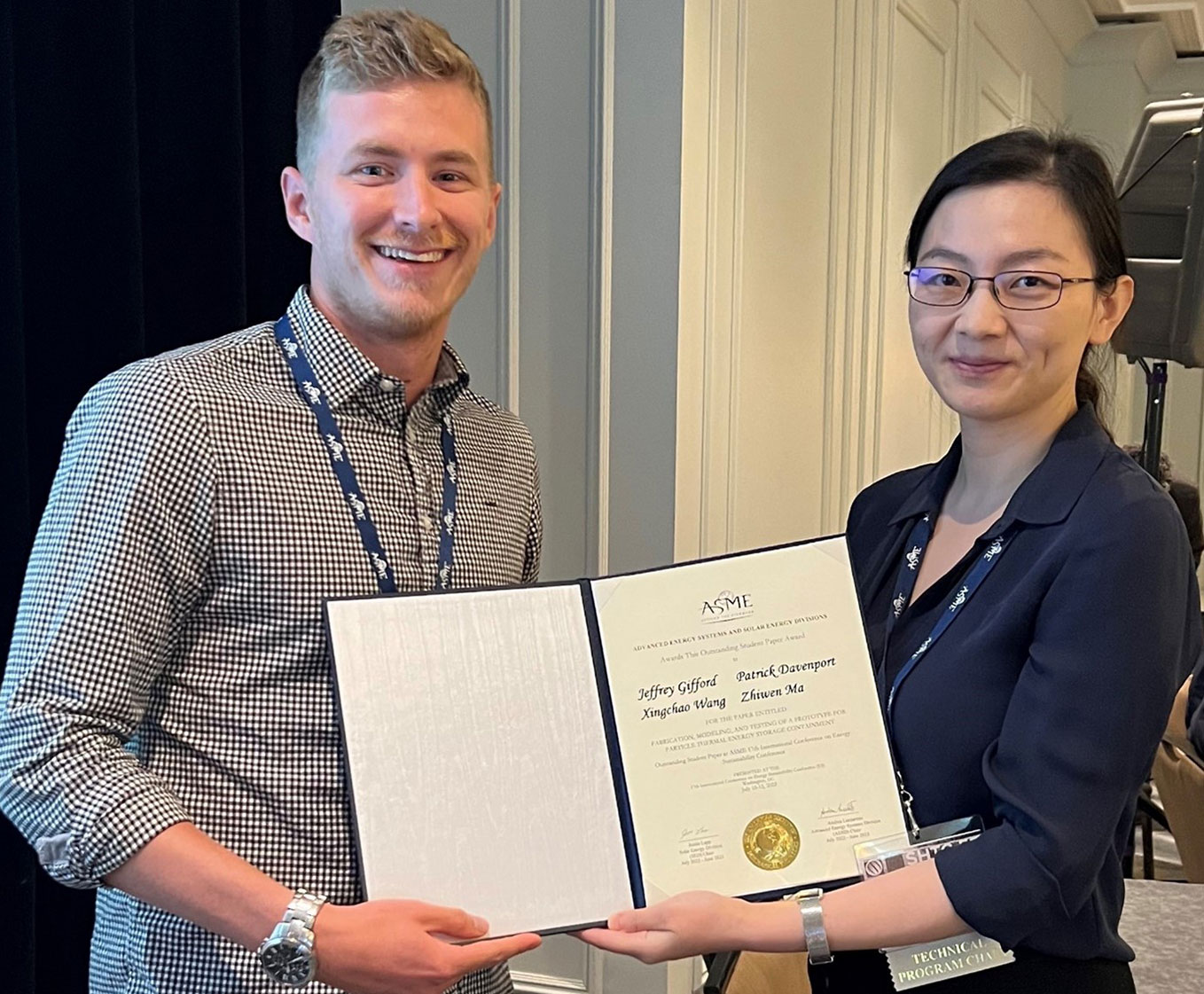


The ASME Advanced Energy Systems Division and Solar Energy Division are pleased to present six awards in two categories to the participants of the ES 2024.
Outstanding Paper Award
To promote high quality research contributions in the field of Energy Sustainability, up to three outstanding papers will be recognized for their originality, impact, clarity, and elegance. The selection will be based on input from the reviewers, track chairs, and the organizing committee. The recipients will be recognized at an awards banquet held during lunch of the conference and will have their names published on the conference website.
Outstanding Student-led Paper Award
To promote the contributions of undergraduate and/or graduate students in the field of Energy Sustainability, up to three outstanding papers featuring students as lead author(s) will be recognized for their originality, impact, clarity, and elegance. The selection will be based on input from the reviewers, track chairs, and the organizing committee. The recipients will be recognized at an awards banquet held during lunch of the conference and will have their names published on the conference website.
Graduate Student Award
Each year, the ASME Solar Energy Division (SED) recognizes an outstanding graduate student working in an area of solar energy including, but not limited to conservation and solar buildings, heating and cooling, photovoltaics, solar chemistry and bio-conversion, solar thermal power, wind energy, solar ponds, solar chimneys, OTEC, and/or energy policy.
The winner receives $500 and is encouraged to give an invited talk at the track level at the conference.
The SED has selected Mario Zuber as the 2024 Graduate Student Award recipient.
Mario is presented in session 17-03 on July 16th at 1:35pm.
The title of his presentation is Modeling of the Ceria-Based Redox Cycle for Dry Reforming of Methane: Towards Optimized Thermochemical Syngas Production.
Biography: Mario Zuber began his PhD under the supervision of Prof. Dr. Steinfeld in 2019, where his thesis focuses on renewable energy carriers, notably solar fuels. His research investigates the system on the theoretical, experimental, and computational fronts. Prior to his doctorate studies, Mario received his BASc from the University of Toronto where he studied mechanical engineering, and later continued his studies at ETH Zürich where he received his MSc in the mechanical engineering department.